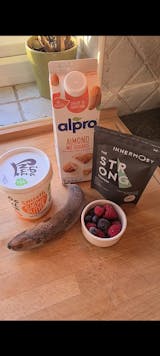During the winter months, it's easy to become accustomed to staying indoors due to the short daylight hours and cold weather. You may be surprised to know just how much this lack of day and sunlight has on our body – and both our physical and mental health. When summer comes around, we're more likely to reap the benefits without noticing, but even then it might take more effort than you think to get enough sun. With a whopping 63% of our recent Quiz takers saying they don't get enough time outdoors, it's certainly an issue needs addressing.

In the United Kingdom, whilst our weather isn’t always what we’d like it to be, we are lucky to have a huge amount of natural green countryside, as well as bustling cities, both providing us with exciting and enjoyable areas to take a daily stroll. So, it’s important that we really make the most of these areas and take advantage of our freedom to explore them. With the weather on the up, we wanted to stress the importance of getting outside, and the health benefits we can gain by doing so.
Let’s start with the basics…
How is sunlight good for you?
We don’t know about you, but any time in the sun makes us feel a whole lot better about ourselves. Sunlight is a great serotonin-booster, which means that getting outside is the perfect way to instantly up your mood. Put simply, serotonin is the hormone responsible for giving you energy and keeping you happy. In the long run, the maintenance of positive serotonin levels will ensure your performance and focus levels are unaffected.
But there’s also science to back this up, too. It’s important to maintain a stable level of Vitamin D in your system, to avoid the risk of any autoimmune deficiencies and cardiovascular diseases. There’s also research to suggest that even just one hour of daily exercise has huge health benefits, particularly when it comes to your heart health. One hour a day is nothing in the grand scheme of things, and you could even break this up into smaller, more manageable regular breaks.
If you’re still not convinced, though, let’s talk about some more benefits of being outdoors…
Nature Health Benefits
Encourages ExercisePretty simply, being outside, your opportunities to be sat down doing nothing are pretty limited. This means that you’re encouraged to exercise just by the sheer nature of being outside – whether that be walking, running, or even skipping if you feel like it.
Clears Your HeadAside from physical benefits, one of the most underrated benefits of being outdoors is the ability to help you destress, clear your head and reduce anxiety levels. Improving your mood is a key way to improve your performance, so taking simple steps to improve your mental health by just taking a quick stroll outside, or organising a meet up in the park, is definitely recommended.
Improves Your Sleep QualityHave you experienced restlessness and broken sleep recently? It could be as a result of you not spending enough time outside. By getting outdoors and spending time in the sun, your body uses up more energy than you would do sat at home at your desk or on your sofa. One of the great benefits of this (aside from increased exercise levels) is that you will experience a great night sleep!
This means your performance and energy levels will thank you later, too.
Increases Your Time in NatureWith the online world at our every turn in both our work and social lives, there has never been a better time to prioritise turning off that screen, putting your phone down and getting outside for some fresh air.
This leads us on pretty nicely to our next point…
Widens Your PerspectiveIt can be pretty hard to find that work-life balance these days, so getting outside is a great way to introduce some of nature’s health benefits to your lifestyle. Getting outside is a great way to remind yourself of the world around you and put your issues into perspective to help you find healthy coping mechanisms of the issues of day-to-day life.
How can I spend more time outside?
It’s okay. We get it. Life can get pretty hectic, so we know how difficult it can be to prioritise spending time outside, despite the benefits. If you’re struggling, here are some easy ways to introduce a brisk trip to the outdoors:
- Lunchtime Walk
- Daily Dog Walk
- Social Outings
- Sunrise and Sunset Strolls
- Take Advantage of Weekends
Summary
Getting yourself out and about is one of the easiest (and cheapest!) forms of exercise, and one of the best things you can do for your mental and physical wellbeing. Whether it’s a five-minute stroll or a five mile run, anything you can do to get yourself outside and reaping the benefits of natural sunlight and it’s Vitamin D is definitely worth doing.
If you want to get yourself outside and are struggling for exercise inspiration – look no further. We’ve got plenty of work out routines, fitness tips and professional advice to get you on your way.
PS - if you’re looking for a way to up your vitamin intake and struggle to find time to get outside, our nutritionist-approved product The Recover Capsules include Vitamin D as one of it’s active ingredients, amongst a wealth of other feel-good ingredients.
References
- Holick, M. F. (2011). Health Benefits of Vitamin D and Sunlight: A D-bate. Nature Reviews Endocrinology, 7(2), 73-75. Click here.
- Lambert, G. W., Reid, C., Kaye, D. M., Jennings, G. L., & Esler, M. D. (2002). Effect of sunlight and season on serotonin turnover in the brain. The Lancet, 360(9348), 1840-1842. Click here.
- Myers, J. (2003). Exercise and Cardiovascular Health. Circulation, 107(1), e2-e5. Cl
























